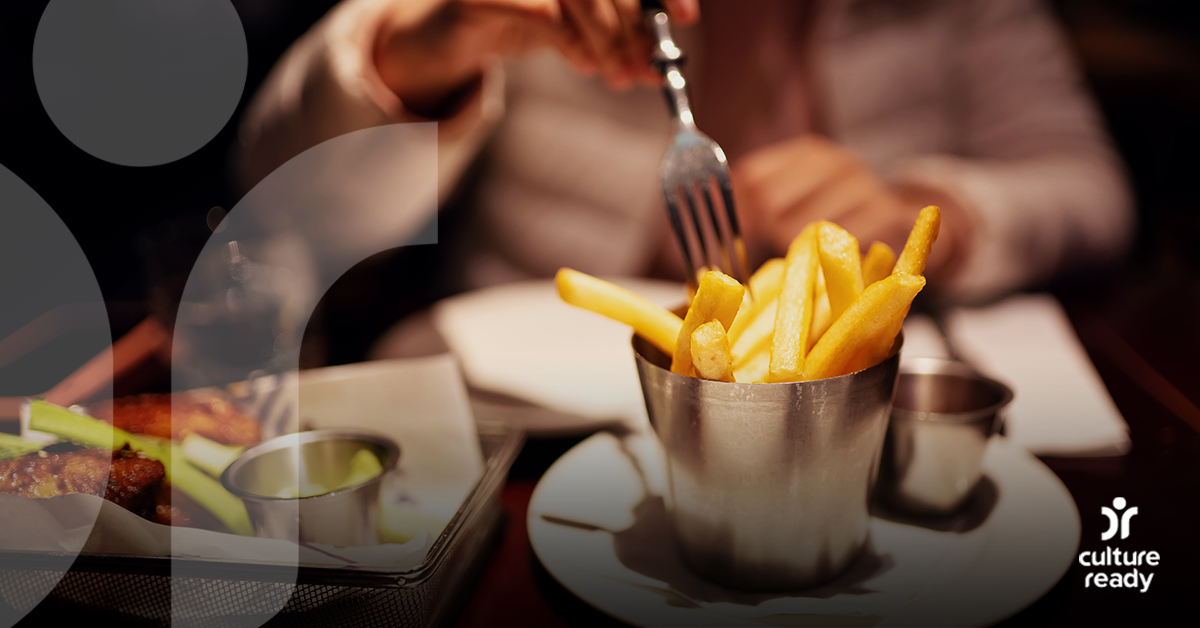Eating French fries with a fork: Tips on German social etiquette
Rules of social etiquette are different in every country: do you smile, shake hands, show up early, refuse or accept offers of drinks, eat with your hands or with silverware? It can be hard to keep track of it all. Here on CultureReady, we’ve covered the topic of social expectations in many different countries, with videos on countries like Egypt, Jamaica, and Morocco, to blogs on Japanese etiquette and exchanging business cards in China.
Today, we’re looking at Germany. You might not think much about the intricacies of interacting with people in western Europe, because there are a lot of similar aspects of culture between the U.S. and German. As the video below points out, a large segment of the U.S. population claims some amount of German heritage. But the expectations of personal and professional interactions in Germany are still different in some notable, and maybe surprising, ways.
Here are some things to keep in mind during your time in Germany:
- Punctuality: Germans are generally considered punctual people. Being late can be considered offensive, and it’s always better to be early.
- Directness: Americans might be considered direct and to the point by some cultures, but not to Germans. Germany is considered a task-oriented culture, and people are often ready to get right to the point when having conversations, both in social and business settings. Small talk isn’t expected or necessary. With work, it’s not considered necessary to foster personal relationships in order to accomplish goals.
- Eating: Perhaps one of the strangest things you may encounter will be how some Germans eat their food. We eat pizza, burgers, and fries with our hands, but in Germany, it’s not uncommon to see people using a knife and fork to eat everything—yes, even that burger. They usually hold their knife and fork in their hand while they’re eating, as opposed to setting the knife down between uses. It’s also considered rude to put your hands in your lap while eating; keep both of your hands visible (holding your knife and fork at the same time is a good way to do this!). If you want to indicate that you are finished eating, then place your knife and fork to the side of your plate. If you are not finished, but simply taking a break from eating, cross them on top of your plate.
- Drinking: Drinking is a huge part of German culture, but that doesn’t mean that you are required to drink during social situations. If someone turns down the offer of a drink, accept that—no need to offer multiple times, as it’s likely not being turned down out of politeness. It’s also common to raise glasses and say cheers ("prost" or "zum wohl") before drinking. And if you are at a business meal or a restaurant, diners typically wait until everyone has been served before they start eating.
- Greeting people: In business settings, a simple handshake will do. But when greeting close friends or family, Germans, like many other Europeans, might kiss each other on each cheek. It is also common to greet people when entering shops, waiting rooms, and other similar venues.
Want to see more content on social etiquette around the world? Search and explore right here on CultureReady.
Learn more
